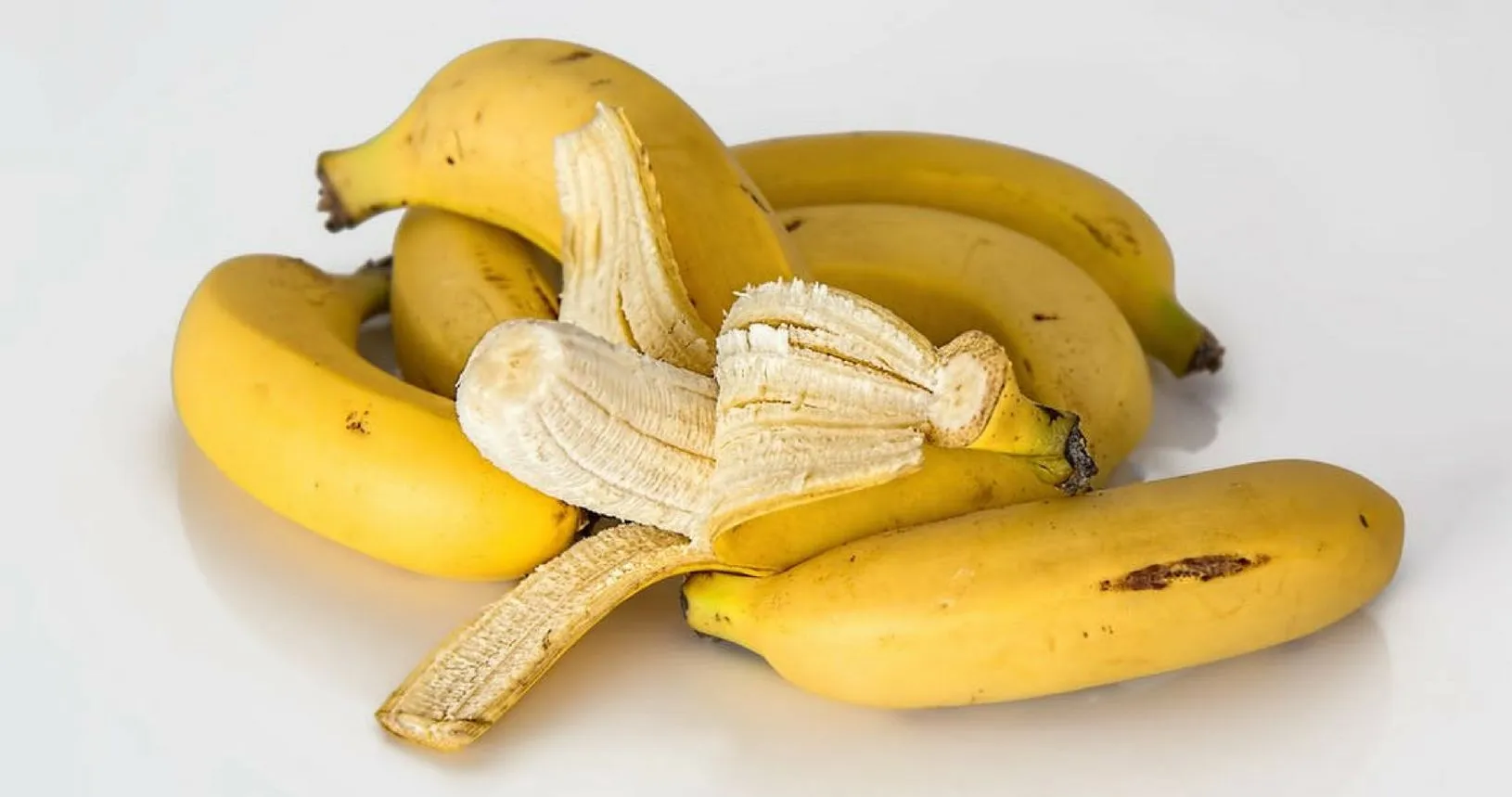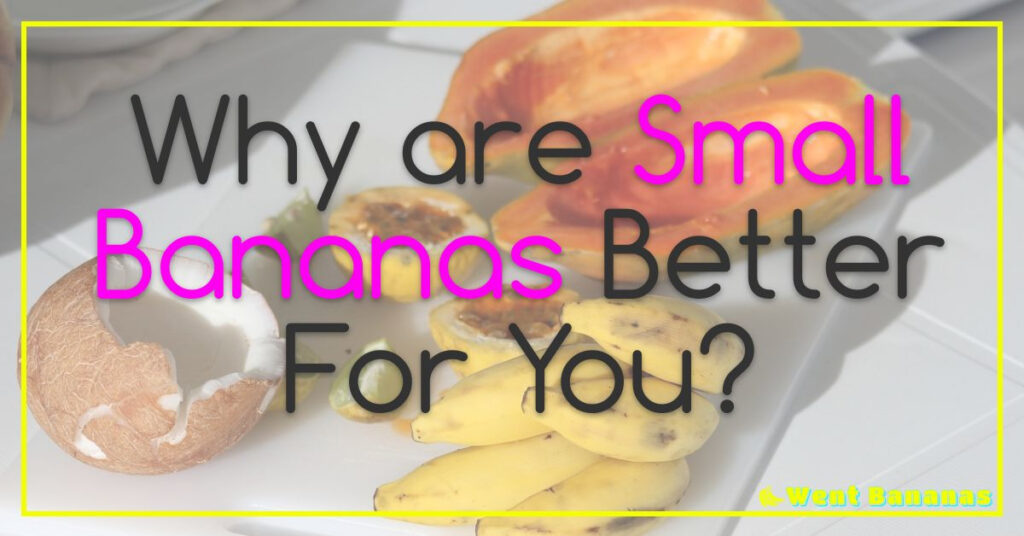The Science Behind Why Bananas Shouldn’t Be Stored with Other Fruit: Tips for Keeping Them Fresh and Delicious!
Bananas are a beloved fruit, loved for their convenience, taste, and nutritional value. But did you know that storing bananas with other fruits could actually cause them to spoil faster? It’s true, and in this article, we’ll explore the science behind why bananas and other fruits should be stored separately.

We’ll take a look at the effects of ethylene gas on bananas and other fruits, and explain exactly what happens when bananas are stored alongside other produce. Additionally, we’ll give you some tips on the best ways to store bananas to ensure they remain fresh and delicious for longer periods of time.
So, if you’re looking to learn more about bananas and the best ways to store them, read on!
What happens when bananas are stored with other fruits?

Have you ever wondered what happens when bananas are stored with other fruits? Well, the answer may surprise you.
Bananas are unique in that they release a gas called ethylene as they ripen. This gas can cause other nearby fruits to ripen and spoil faster. So, if you store your bananas with other fruits such as apples or pears, those fruits will likely ripen and spoil more quickly than if they were stored alone.
However, there are some exceptions to this rule. Certain fruits like avocados and kiwis actually benefit from being stored with bananas because they also produce ethylene gas and can help each other ripen evenly.
So, what should you do if you want to keep your bananas fresh for longer? The best option is to store them separately from other fruits in a cool, dry place. You can also try wrapping the stems of your bananas in plastic wrap or aluminum foil to slow down the release of ethylene gas.
In conclusion, while it may seem harmless to store your bananas with other fruit, it’s important to be mindful of how this can impact their freshness and shelf life. By understanding how bananas interact with different types of fruit, we can make better decisions when it comes to storing our produce and avoid unnecessary waste.
The science behind why bananas should not be stored with other fruits.
Did you know that bananas emit a gas called ethylene as they ripen? This gas can speed up the ripening process of other fruits and vegetables nearby, causing them to spoil faster. That’s why it’s important to keep bananas separate from other produce when storing them.
But it’s not just about avoiding spoilage. The science behind why bananas should not be stored with other fruit goes deeper than that. Ethylene is actually a plant hormone that regulates growth and development in fruits and vegetables. When an apple or tomato is exposed to ethylene, for example, it can cause the fruit to become overripe or even rot.
This phenomenon has been studied extensively in the field of postharvest biology, which focuses on preserving the quality and shelf life of crops after they’ve been harvested. By understanding how different fruits and vegetables respond to ethylene exposure, scientists have developed methods for controlling ripening and extending shelf life.
For example, some companies use specialized storage facilities with controlled atmospheres that regulate temperature, humidity, and gas concentrations to slow down or pause the ripening process of certain fruits. Others use chemicals like 1-methylcyclopropene (1-MCP) to block ethylene receptors in produce, preventing them from responding to ethylene exposure.
So next time you’re grocery shopping or storing your produce at home, remember: keeping bananas away from other fruit isn’t just a matter of preventing spoilage – it’s also about respecting the complex science behind how plants grow and develop.
The effects of ethylene gas on bananas and other fruits.

Ethylene gas is a naturally occurring compound that plays a critical role in the ripening process of fruits, including bananas. However, as with any chemical, its effects are complex and can be both positive and negative.
When it comes to bananas specifically, ethylene gas is necessary for the fruit to ripen properly. In fact, bananas produce ethylene gas themselves as they ripen, which triggers a cascade of biochemical reactions that soften the fruit and make it sweeter. However, if too much ethylene is present or if the fruit is exposed to it for too long, the banana can become overripe and mushy.
The effects of ethylene on other fruits also vary depending on factors such as their maturity level and sensitivity to the gas. For example, apples are highly sensitive to ethylene and can quickly develop brown spots or become mealy when exposed to it. On the other hand, tomatoes are more resistant but still benefit from some exposure in order to fully ripen.
Overall, understanding how ethylene affects different fruits is important for anyone looking to store or transport them effectively. By controlling levels of this gas during different stages of production and distribution, growers and retailers can ensure that their produce reaches consumers at peak freshness while minimizing waste.
In conclusion,it’s clear that while ethylene has both positive and negative effects on bananas and other fruits,it remains an essential part of successful fruit production.It’s up to individuals within this industry,to understand how best they can harness its power for optimal results.
The best way to store bananas to ensure freshness.
Bananas are a delicious and nutritious fruit that can provide a quick energy boost to anyone who indulges in their sweet flavor. However, keeping bananas fresh for an extended period can be challenging, especially if you live in warm and humid environments. Fortunately, there are several ways to store bananas that will help preserve their freshness.

The first step to ensuring the extended freshness of your bananas is to keep them away from direct sunlight or heat sources. Bananas are sensitive fruits that can quickly ripen when exposed to heat or light. Therefore, it’s best to keep them in a cool and dry place such as the pantry or refrigerator.
If you prefer storing your bananas outside the fridge, you should consider using banana hangers or hooks. These devices allow air circulation around the fruit while preventing bruising or damage from other objects around them. Additionally, banana hangers help maintain the shape of your bananas by preventing them from touching each other.
Another way to store ripe bananas is by wrapping their stems with plastic wrap tightly. Doing so slows down ethylene gas production responsible for ripening fruits faster than usual; hence they will last longer before turning brown.
Lastly, one of the most effective ways of storing ripe bananas is by freezing them whole or sliced into small pieces. Frozen bananas make an excellent base for smoothies and milkshakes while still retaining all their nutritional benefits.
In conclusion, keeping your beloved yellow fruit fresh requires some effort but well worth it as they provide numerous health benefits when consumed regularly! Follow these tips above on how best store ripe; you’ll enjoy deliciously sweet tasting banana treats whenever desired!
Check out our other articles to find out even more about banana.
Bananas are a popular and versatile fruit, but it’s important to be aware of the effects of storing them with other fruits. By understanding the science behind why bananas should not be kept with other produce, as well as how to store them properly for optimal freshness and longevity, you can take the right steps in order to enjoy your favorite yellow snack! If you’re looking to learn more about bananas and their unique characteristics, check out our other articles to find out even more about this beloved fruit.










